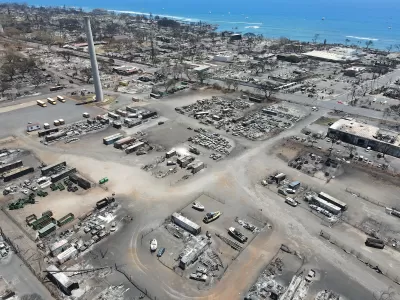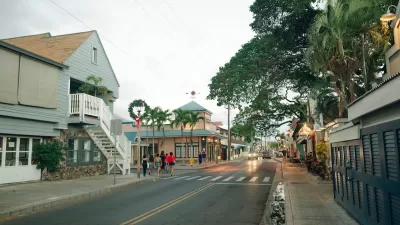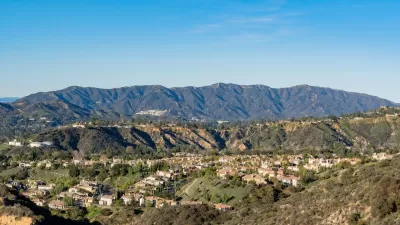Congress has approved federal funding to support Maui’s wildfire recovery, including housing, economic development, and infrastructure improvements while fostering long-term community resilience and preparedness.

In a significant move to aid Maui’s recovery from the devastating 2023 wildfires, Congress has approved $2.1 billion in federal funding as part of a short-term spending bill. As reported by Catherine Cluett Pactol, the allocation includes $1.6 billion in Community Development Block Grant Disaster Recovery (CDBG-DR) funds for housing and $480 million for economic development, small business support, and critical infrastructure improvements such as roads and water systems. U.S. Senator Brian Schatz heralded the bill’s passage, calling it a long-awaited milestone for the community and a crucial step toward rebuilding.
Maui County Mayor Richard Bissen expressed gratitude for the federal relief, emphasizing its importance in addressing the needs of the most vulnerable wildfire survivors and investing in resilience projects to better prepare the community for future challenges. Strict federal guidelines will govern the allocation and use of these funds, requiring comprehensive financial oversight and reporting by Maui County. To ensure proper management, a dedicated program office has been established within the county’s Office of Recovery.
This funding represents a pivotal opportunity to not only rebuild homes and businesses but also to fortify Maui’s infrastructure against future disasters. Mayor Bissen and local leaders view the funding as an essential component of their long-term vision for a stronger, more resilient Maui. With the President’s signature on the bill imminent, this landmark investment is set to drive forward recovery efforts and enhance the island’s preparedness for years to come.
FULL STORY: $2.1B in federal funding will help in Maui's wildfire recovery efforts

Maui's Vacation Rental Debate Turns Ugly
Verbal attacks, misinformation campaigns and fistfights plague a high-stakes debate to convert thousands of vacation rentals into long-term housing.

Planetizen Federal Action Tracker
A weekly monitor of how Trump’s orders and actions are impacting planners and planning in America.

San Francisco Suspends Traffic Calming Amidst Record Deaths
Citing “a challenging fiscal landscape,” the city will cease the program on the heels of 42 traffic deaths, including 24 pedestrians.

Defunct Pittsburgh Power Plant to Become Residential Tower
A decommissioned steam heat plant will be redeveloped into almost 100 affordable housing units.

Trump Prompts Restructuring of Transportation Research Board in “Unprecedented Overreach”
The TRB has eliminated more than half of its committees including those focused on climate, equity, and cities.

Amtrak Rolls Out New Orleans to Alabama “Mardi Gras” Train
The new service will operate morning and evening departures between Mobile and New Orleans.
Urban Design for Planners 1: Software Tools
This six-course series explores essential urban design concepts using open source software and equips planners with the tools they need to participate fully in the urban design process.
Planning for Universal Design
Learn the tools for implementing Universal Design in planning regulations.
Heyer Gruel & Associates PA
JM Goldson LLC
Custer County Colorado
City of Camden Redevelopment Agency
City of Astoria
Transportation Research & Education Center (TREC) at Portland State University
Jefferson Parish Government
Camden Redevelopment Agency
City of Claremont





























